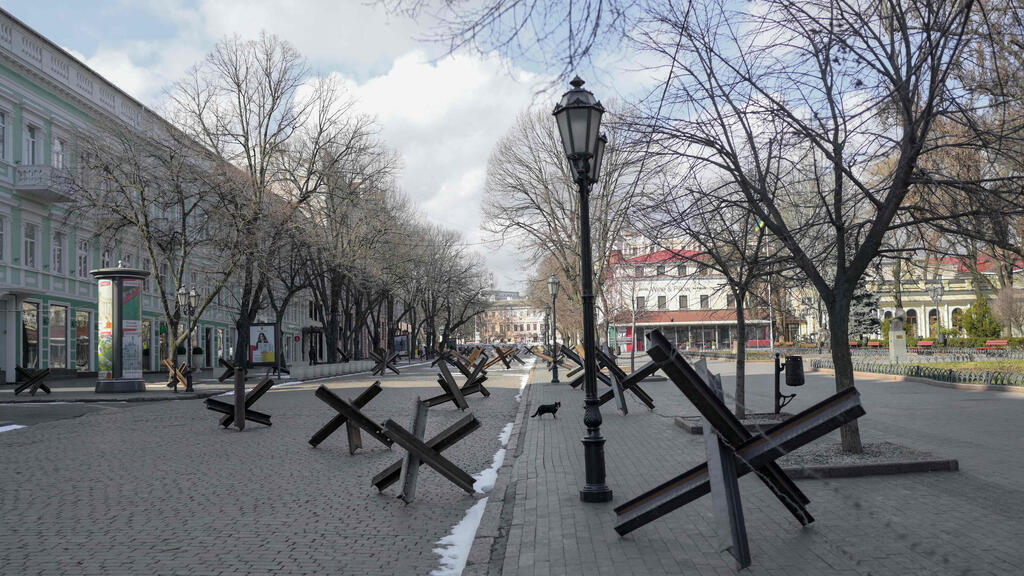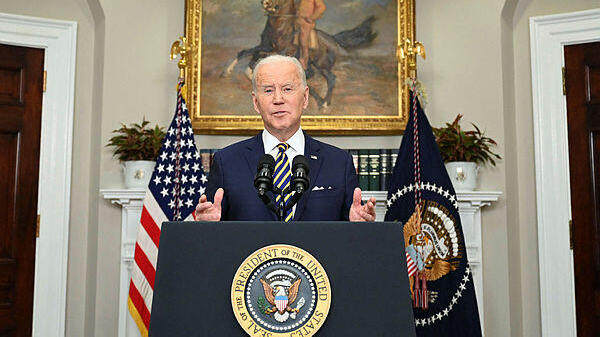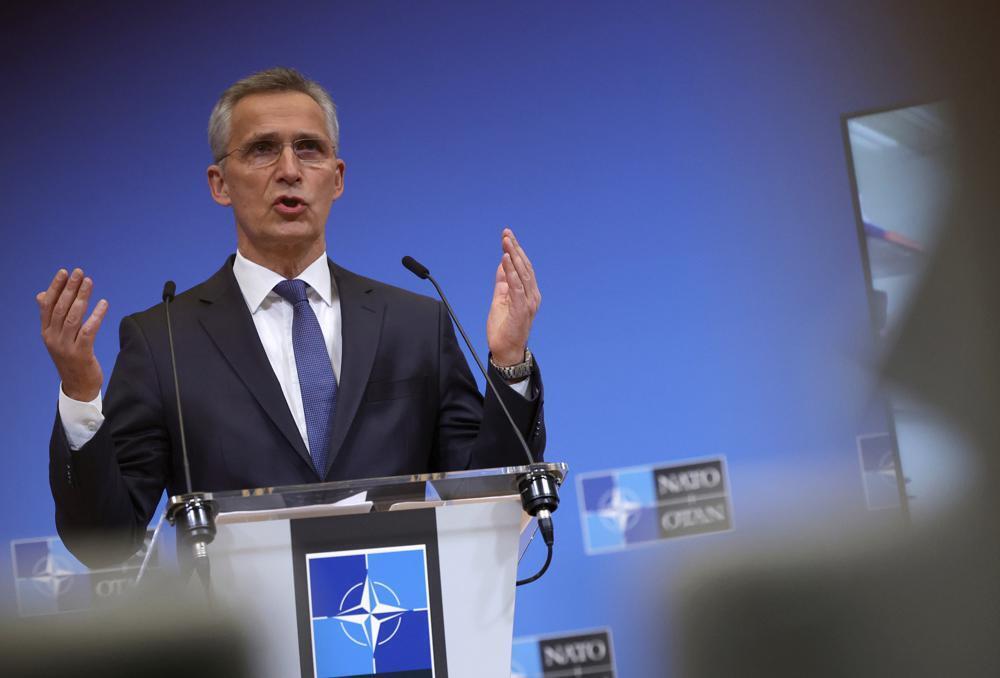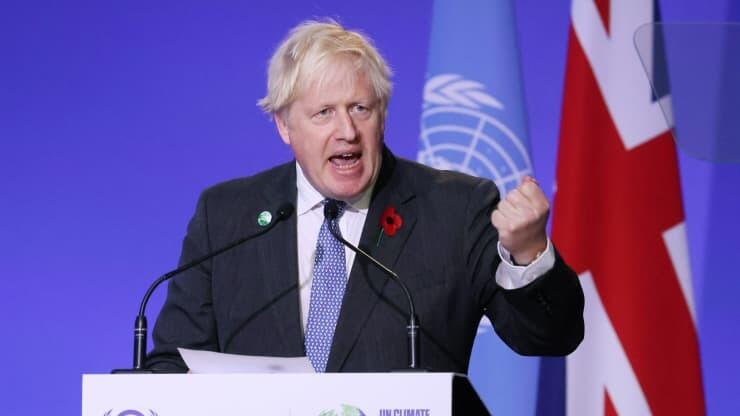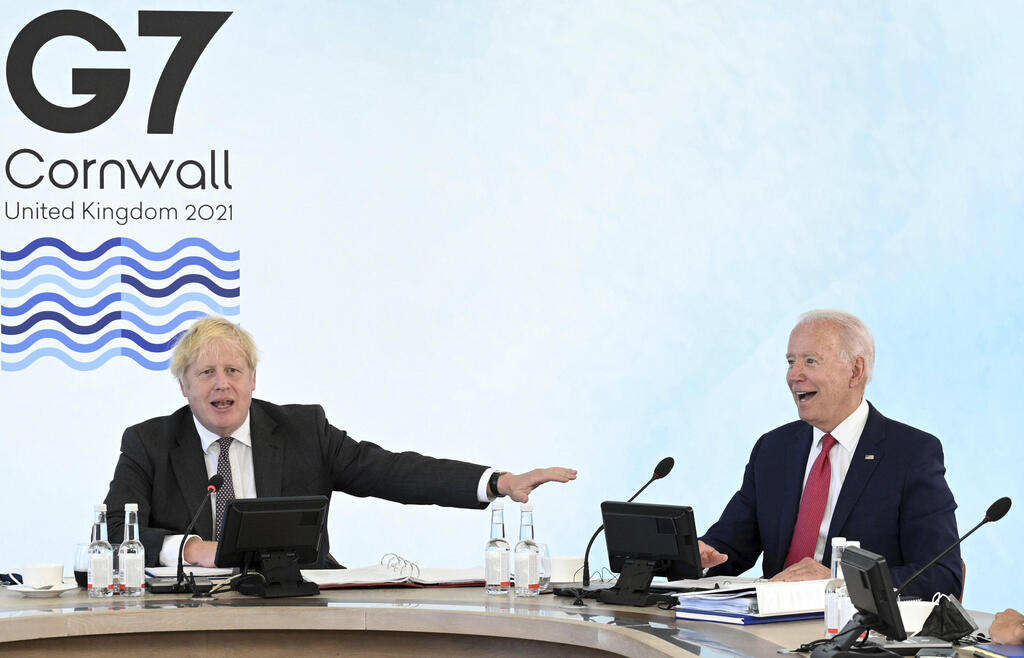Getting your Trinity Audio player ready...
Western leaders on Thursday showcased their unity against the Kremlin's war in Ukraine as Washington seeks more military aid to Ukraine, London imposes fresh sanctions against Moscow, and NATO assigns more troops for its eastern flank.
Ukrainian President Volodymyr Zelensky called on NATO, EU and G7 countries meeting in Brussels to help Kyiv fight Russia's invasion, which has killed thousands and driven a quarter of Ukraine's 44 million people from their homes.
"We are determined to continue to impose costs on Russia to bring about the end of this brutal war," NATO Secretary-General Jens Stoltenberg told the leaders gathered at the Western military alliance's headquarters.
"We will discuss allied support to Ukraine. We will also address NATO's efforts to strengthen our defenses now and for the years to come."
U.S. President Joe Biden told the closed-door session he was in favor of sending more troops to NATO's eastern flank, said a senior U.S. administration official, adding Washington was working to support Ukraine with anti-ship missiles.
NATO has, however, rejected repeated pleas by Kyiv to defend Ukraine's skies from Russian airstrikes, and Zelensky — who joined the NATO summit through a video call — has complained the West had not provided tanks or modern anti-missile systems.
NATO would also not send troops or planes to Ukraine, reiterated Stoltenberg. Two media outlets in his native Norway reported Stoltenberg would stay on as the alliance's head beyond the end of his current term later in 2022, due to the war.
"NATO has yet to show what the alliance can do to save people," Zelensky told the summit, adding he believed Russian President Vladimir Putin wanted to attack eastern NATO members — Poland and the Baltic states — as well.
Putin says his "special military operation" is meant to disarm Ukraine, whose aspirations to join NATO and the EU are anathema to Moscow.
NATO has increased its presence on its eastern borders, with some 40,000 troops spread from the Baltic to the Black Sea. The summit was due to agree to deploy four new combat units in Bulgaria, Romania, Hungary and Slovakia.
Sanctions and Energy
A NATO official estimated that up to 15,000 Russian troops have been killed in Ukraine so far and that a total of up to 40,000 have been killed, wounded, taken prisoner or are missing.
7 View gallery
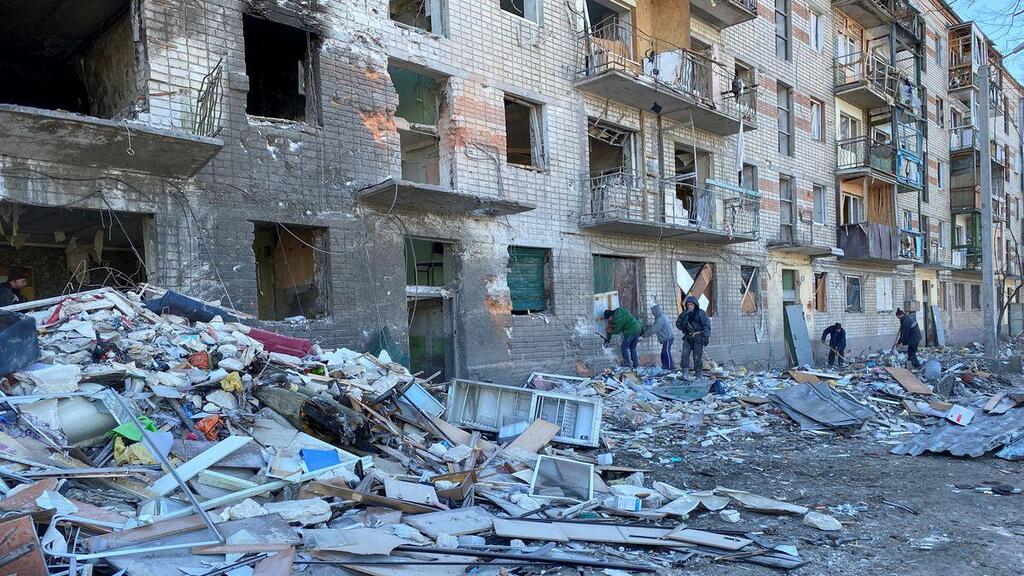

Municipal workers and volunteers remove debris of a damaged residential building, as Russia's attack on Ukraine continues, in Kharkiv
(Photo: Reuters)
The month-long land, sea and air assault targeted residential areas, schools and hospitals in Ukrainian cities including Kharkiv as well as besieging Mariupol on the Sea of Azov. Russia denies targeting civilians.
Britain on Thursday sanctioned another wave of Russia's banks including Gazprombank and Alfa Bank, as well as a woman London said was the stepdaughter of Sergei Lavrov, Putin's veteran foreign minister.
"Putin has already crossed the red line into barbarism," British Prime Minister Boris Johnson said, adding: "The harder our sanctions … the more we can do to help Ukraine … the faster this thing can be over."
Johnson told LBC radio earlier that one option was to see if more can be done to prevent the Russian president from accessing his gold reserves, which could stop people buying Russian gold to convert it into hard currency.
The resolve to punish Moscow with massive sanctions will be underlined by an emergency meeting of the G7 advanced economies, which will bring Japan into the room with six NATO members.
Then, with a summit of the 27-nation European Union, countries representing more than half of the world's gross domestic product will have met in one day.
"Paralyze Putin's war machine. Oil and gas are at its heart," said Estonia's Prime Minister Kaja Kallas. "We should set up a special third-party account to prevent revenues from going towards financing the war."
The EU — which says it has already taken in some 3.6 million refugees from Ukraine — is only very slowly moving away from Russian gas and still depends on Moscow for a large share of its energy needs.
7 View gallery
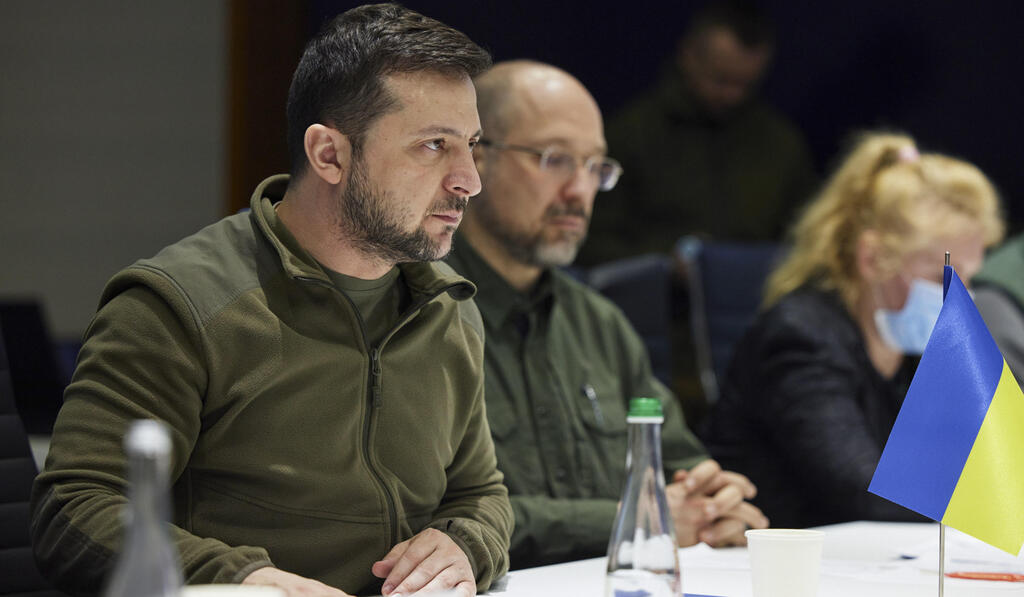

Ukraine President Volodymyr Zelensky during a meeting with visiting EU member state leaders
(Photo: EPA)
Energy has largely been omitted from sanctions, the biggest loophole in measures that have otherwise frozen Russia out of world commerce to a degree never attempted before on such a large economy.
EU leaders are expected to agree at their two-day summit to jointly buy gas, and Brussels also hopes for a deal with Biden to secure additional U.S. liquefied natural gas supplies for the next two winters.


